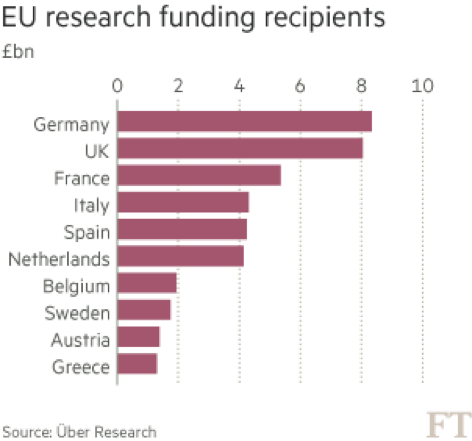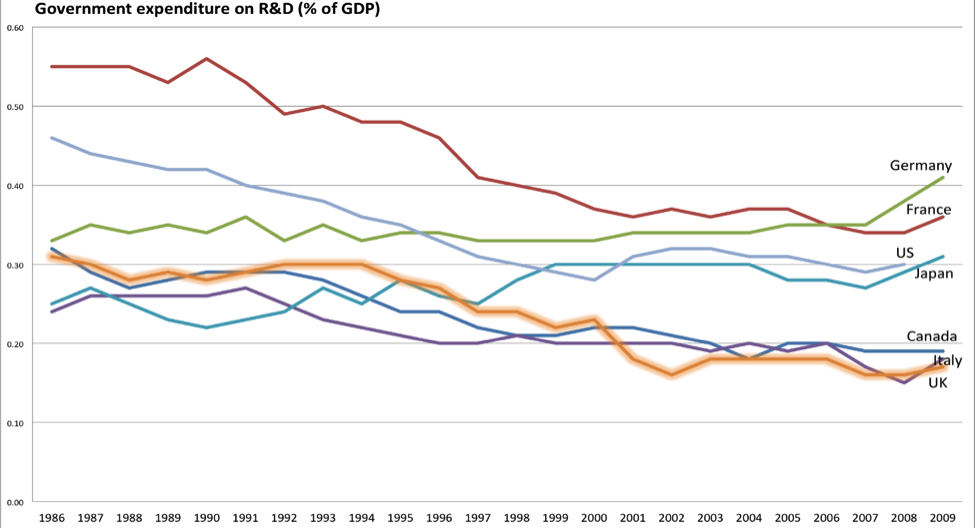UK leaving the EU implies a lot of damaging consequences for Science and Research & Development in the UK, and prevents the numerous benefits that membership brought to healthcare and the national economy.
The scale and stability of EU funding make a considerable contribution to the high-quality research undertaken in the UK, making it an important part of UK research funding. A particularly large share of the most prestigious grants from the European Research Council goes to the UK and a loss of these funds would deprive UK scientists of £1bn a year, according to the technology consultancy Digital Science. British researchers were extremely successful in at attracting EU funds, a quarter of all public funding for research in the UK coming from the EU, making the country the second-biggest recipient after Germany.
The scale and stability of EU funding make a considerable contribution to the high-quality research undertaken in the UK, making it an important part of UK research funding. A particularly large share of the most prestigious grants from the European Research Council goes to the UK and a loss of these funds would deprive UK scientists of £1bn a year, according to the technology consultancy Digital Science. British researchers were extremely successful in at attracting EU funds, a quarter of all public funding for research in the UK coming from the EU, making the country the second-biggest recipient after Germany.
Furthermore, the UK lags behind peers when it comes to government expenditure on R&D. From the graph it can be seen that in the UK there has been on a downward trend, falling from 0.3 per cent of GDP in 1995 to around 0.18 per cent of GDP in 2009, according to figures compiled by the Campaign for Science & Engineering.
In addition, Brexit would disrupt the international spirit of science in the UK, especially at a time when cross-border collaboration is becoming more important. The UK benefits from the diversity of opinion coming from working together within the EU, having access to 500m EU citizens and attracting skilled European researchers in their most productive and innovative years. Efforts to bring more researchers into Britain from different parts of the world would struggle to make up for the loss of people from the EU if there is no free movement. Being a member of the EU supports international research collaborations, lowers administrative costs for scientists and acts as an amplifier of ideas, talent and resources. The dynamic environment represented in the Science and R&D departments nurtures creativity and drives progress. This will diminish the UK’s power to keep their science richer, influential and ready to stand up to future challenges.
However, the chancellor, Philip Hammond, announced that the British government would take an active role in supporting research and development, hoping for a positive change after years of real-terms reductions in government R&D spending. He has also included that a new National Productivity Investment Fund will inject £4.7bn extra into R&D between 2017 and 2021. This will be the largest increase in R&D investment since the Labour government of the late 1970s.
Andrea Gluscevic
However, the chancellor, Philip Hammond, announced that the British government would take an active role in supporting research and development, hoping for a positive change after years of real-terms reductions in government R&D spending. He has also included that a new National Productivity Investment Fund will inject £4.7bn extra into R&D between 2017 and 2021. This will be the largest increase in R&D investment since the Labour government of the late 1970s.
Andrea Gluscevic

